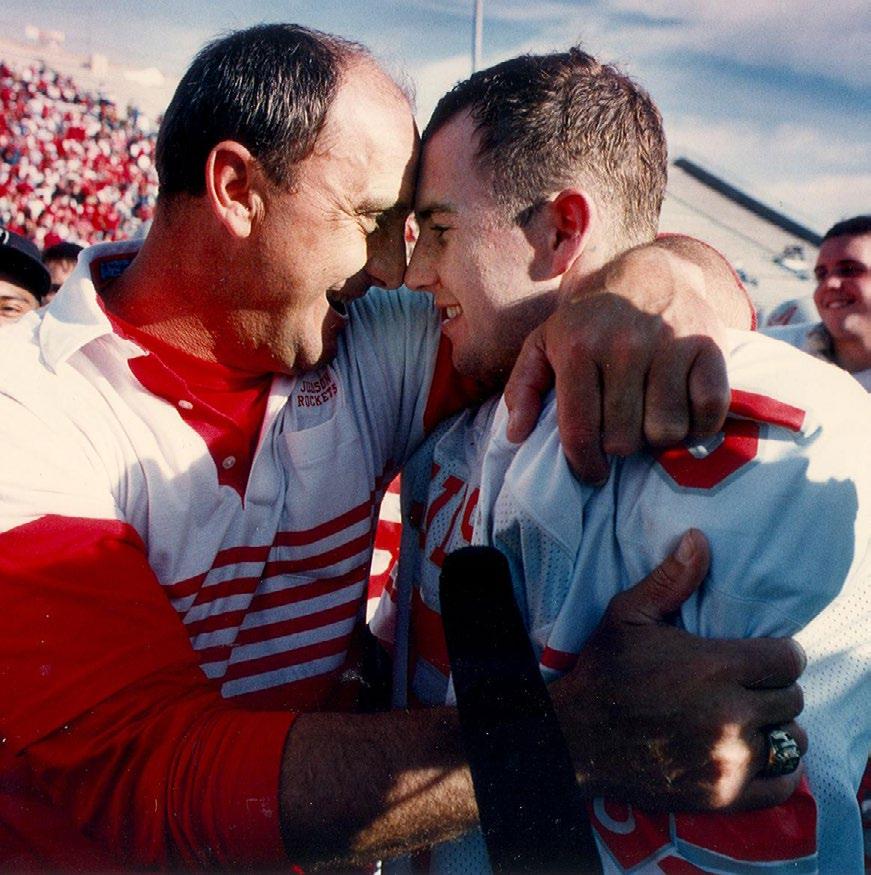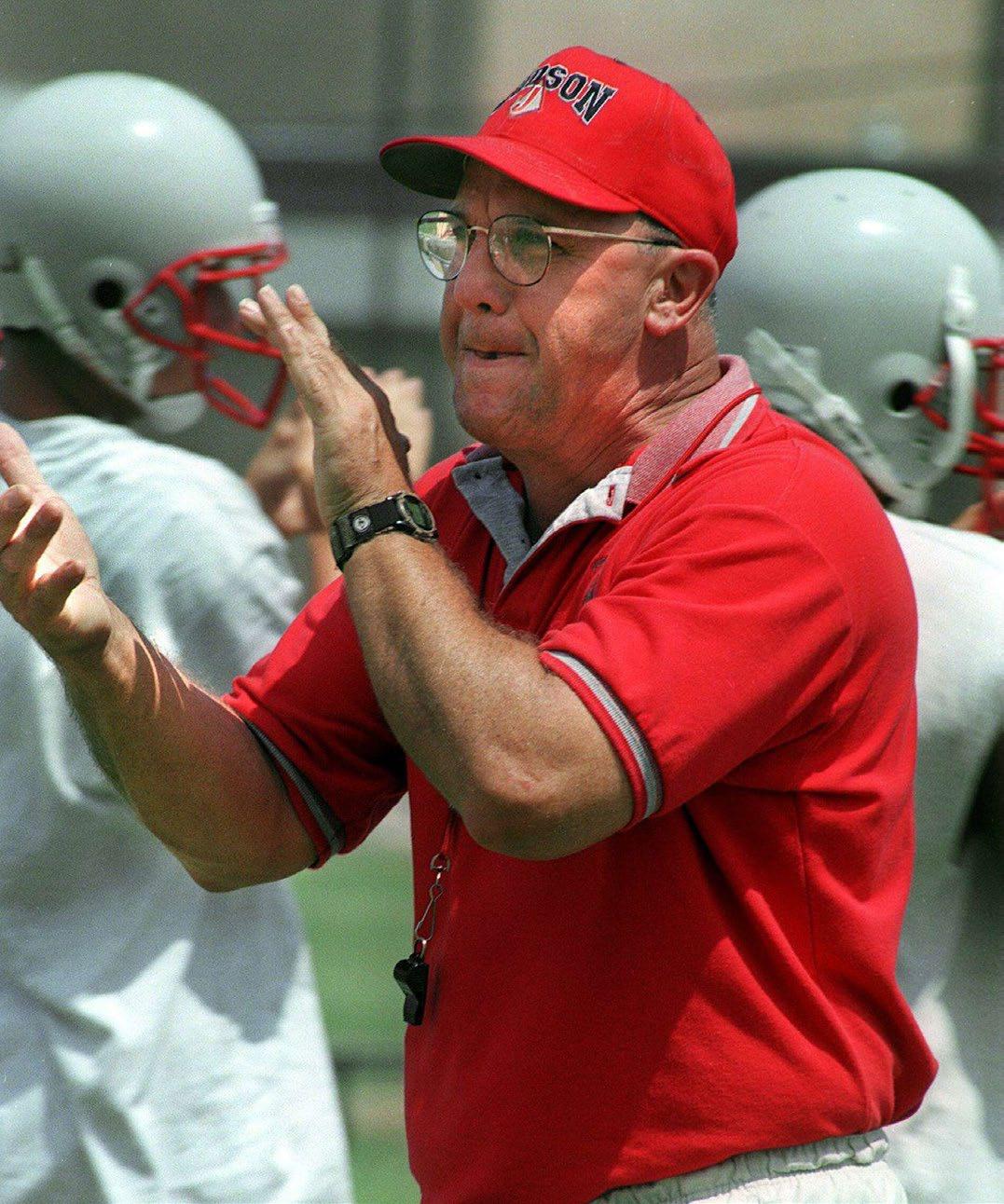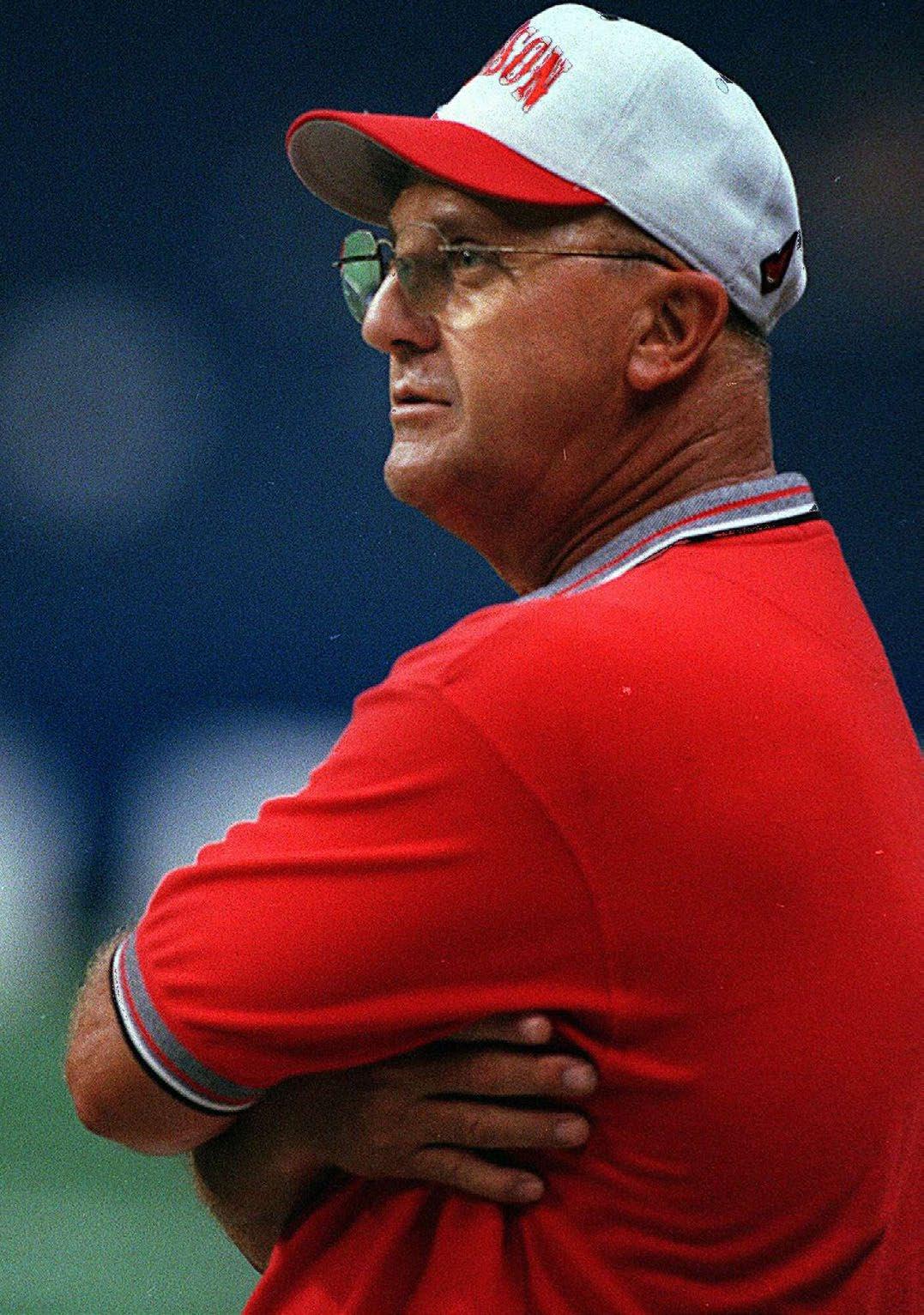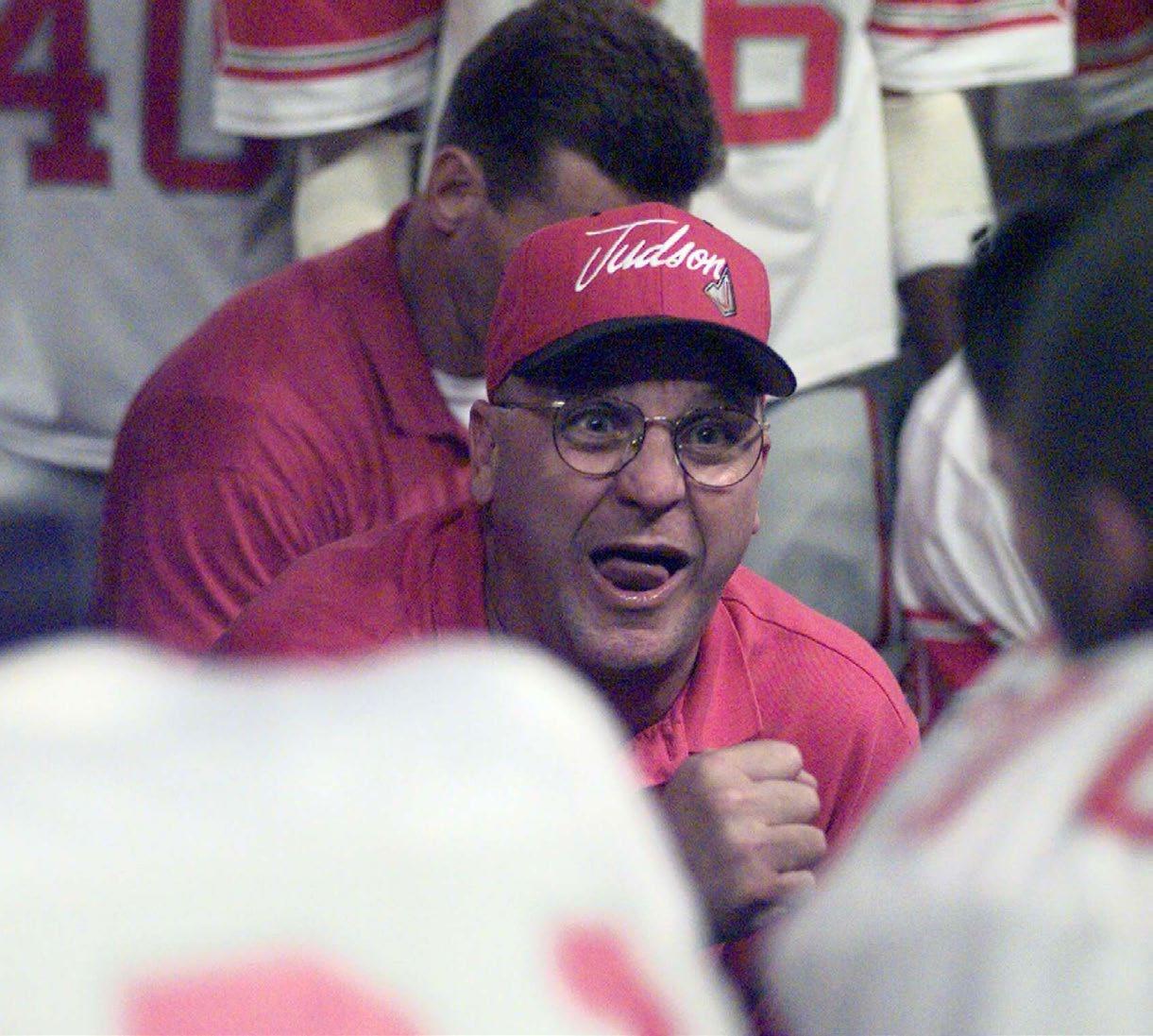
8 minute read
WHAT SOCIETY NEEDS FROM COACHES NOW MORE THAN EVER!
BY D.W. RUTLEDGE(Retired Coach and Former THSCA Executive Director)Reprinted from The Pivot by MyCoachingTree
If I could advise a coach and could give only two areas of emphasis, I would pick these:
I. “Coach for the right reasons”
II. “Coach 'Em Up!”
I. COACH FOR THE RIGHT REASONS
Ask yourself this question: Why do I want to coach? What is my purpose for coaching? What is going to motivate me to get up every morning and go to work?
If as coaches, we get up each morning and come to work only to try and win a football game, or a volleyball game, or a basketball game, then our job carries with it a pretty shallow purpose. However, if we are getting up each morning and going to work because we have a chance to change a young person's life, to get that young man off the road to nowhere and on the road to somewhere, then that is something that I can get excited about. That is something that I can have a real passion for, changing a young person's life!
I believe we are in one of the greatest professions in the world, because I believe coaches can be some of the most influential people in our entire society. Think about it, we have been given the unique opportunity to work closely with hundreds of young people on almost a daily basis, with the opportunity to touch lives at a very teachable age, and develop not only physical skills, but worthy values, attitudes, and character traits. What a great purpose and what a great opportunity and what a great responsibility our profession carries with it. There are approximately 1,080,000 junior high, high school, and college coaches in America. In a lifetime, each of us has the opportunity to impact 20,000 young men and women. We have a great opportunity, and I believe responsibility, to have a positive impact on our schools, our community, and collectively on our society.
I really believe that our young people today, more than any other time in the history of education, are desperate for love, discipline, and for direction. What we as coaches are doing with the hearts, the minds, and the souls of our young people is much more important than any physical training that we can give them, or any skills that we can teach them.
A coach has two tasks: One major – and one minor. Our major task is in the attitudes and the intangibles that we have an opportunity to teach. Our minor task is in teaching the sport and all too often we get those mixed up.
I believe that our athletic programs and our coaches can have a tremendous impact on our communities, and a major impact on the lives of our young people. It is critical to our kids and our schools that we find ways within our programs to teach winning attitudes and character traits.
I have heard coaches and teachers say, “Do we have to do it all?” “Can't we just do what we were trained to do – teach our subjects?” “Do we have to teach them and raise them too?!”
You know, the school and family are about all our kids have; and if some families are unable to respond, then who else is gonna do it?!
You see, I believe American kids are just too precious for us to ignore the realities of our time and to just abandon them to faith!
Yes, I guess we've got to do it all if that's what it takes; there are obviously two types of education: One teaches us how to make a living, and the other teaches us how to live.
I believe that through our athletic programs, we can teach many lessons of life and fill some of that void that so many of our young people have today.
You know, we teach by example. I think it's important for us to be what we expect our kids to be. I believe that being a strong example for our athletes helps them to be strong. As leaders of young people, we must realize that sometimes what we do speaks so loudly, they can't hear what we say.
Leaders are leaders because of what they do, not what they say they're going to do.
I want to share a poem that I used to share with our coaches each year. It has a great message for coaches and teachers and parents.

“I’D RATHER WATCH A WINNER TNAN HEAR ONE ANY DAY.”
I'd rather watch a winner, than hear one any day. I'd rather have one walk with me, than merely show the way.
The eyes, a better pupil, and more willing than the ear. Fine cancel is confusing, but examples are always clear.
And the best of all the coaches are the ones who live their creeds, for to see the good in action is what everybody needs.
I can soon learn how to do it, if you'll let me see it done, I can watch your hands in action, but your tongue too fast may run.
And the lectures you deliver may be very wise and true, but I'd rather get my lessons by observing what you do.
For our main misunderstanding, you and the high advice you give, but there's no misunderstanding and how you act and how you live.
I’D RATHER WATCH A WINNER THAN HEAR ONE ANY DAY!
II. COACH 'EM UP!
Believe in your kids! There are many people today who say that youth are no good. Strangely enough, they said the same thing 1,000 years ago. Kids are just like all of us. They have within them, a force to do good and a force to do bad. What they need is positive leadership –someone who supports them, disciplines them and encourages them. In a society where there are so many broken homes. It is important that our young people have someone they can look to; someone who sees the good in them and brings it out.
One of the smartest definitions of leadership I have seen is from Bill McCartney. He calls it a powerful positive presence. If you are positive, your presence will be powerful. Think about it – everyone can lead under this concept. You need only to bring a healthy attitude to your squad every day you are positively influencing your team.

When you are negative and weak, you make those around you negative and weak. When you are positive and strong you make those around you positive and strong – they draw on your strength and enthusiasm!
As coaches, these are some things that we should remind ourselves of each day!
1. COACH UP! – We all respond better and stronger to positive reinforcement than negative. Find the good in your kids, expect their best, and demand their best.
“If you take a man as he is, you make him worse than he was; but if you see him as being the best person possible, then he in fact, becomes the best person possible.
2. Be what you want and expect your kids to be.
Be positive; be enthusiastic; be poised; show excitement; hustle! Try and be consistent in your attitude. What is important is not what you do, but what the athlete does as a result of what you do.
3. Have compassion! – Love your players! They need you. Love is the greatest force on earth! They know when you sincerely care for them!
Don't let your love for winning or your hatred for losing get in the way of your care and concern for your kids. Do you coach to help kids, or do you coach kids to help you?
4. Build up your players!
Give them respect – talk about them – praise them – talk about the good things they do!
One of our primary tasks is to convincingly tell the athlete, “I believe in you! You are going to make something special!
5. Our goal is to stimulate and direct the athlete’s self-activity.
Your task as a coach is to develop people who are self-directed, who are disciplined, who do what they do because they choose to do it.
The ultimate test of coaching is not what you do or how well you do it, but what and how well the athlete does.
Teaching and coaching are the ability to inspire learning!
IT TAKES WORK TO GET PEOPLE TO WORK!!






